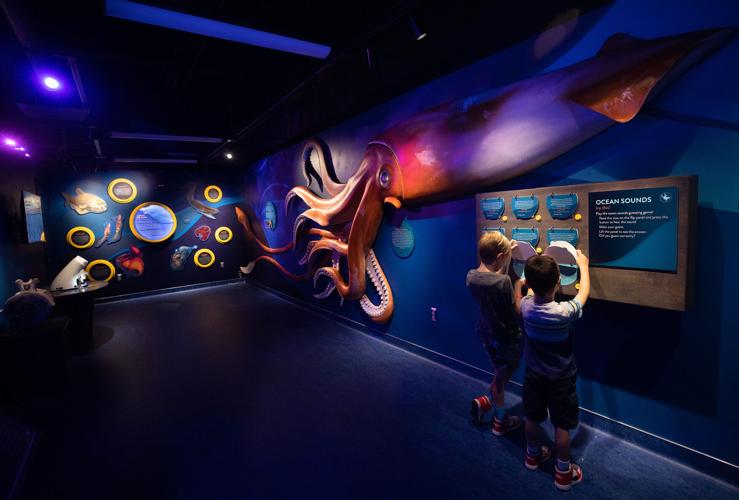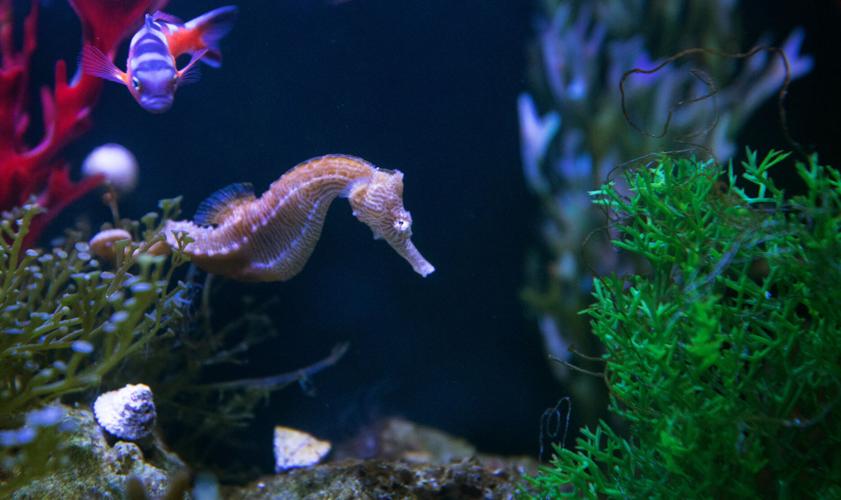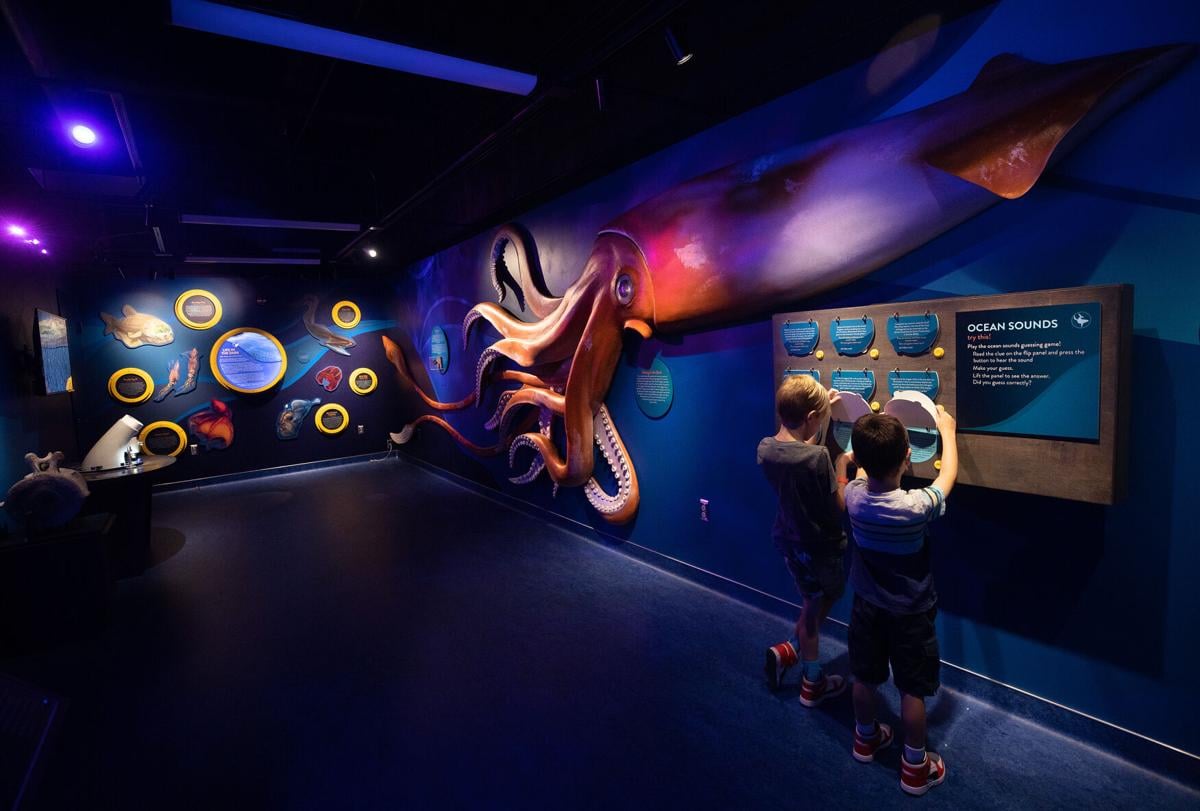The Flandrau Science Center and Planetarium is bringing the ocean to landlocked Tucson with its newest exhibit, “Undersea Discovery.”
The exhibit features actual sea creatures, interactive displays, hands-on activities and information designed to help visitors learn about the ocean and its fragile ecosystem.
“Our goal for Undersea Discovery is for visitors to discover the wonders of the oceans, gain a better understanding of the importance of the oceans to all life on Earth, and learn how everyone, even those of us living in the Sonoran Desert, can have a positive impact on preserving our oceans,” said Bill Plant, Flandrau exhibits director.

Daniel Smith, middle, peers into a fish tank as Elizabeth Gonzales, far left, and Bill Plant, exhibits director, look on at the “Undersea Discovery” exhibit at the Flandrau Science Center and Planetarium.
As soon as you enter the exhibit, you are greeted by the touch tank, which includes sea creatures such as sea urchins, sea cucumbers and brittle stars. Trained staff members will be on hand to provide information about the animals in the tank, as well as providing tips on how to gently handle them. The sea life doesn’t stop there with three salt-water tanks that showcase the diversity within marine life.
The stunning coral reef tank features colorful corals, sea anemones, clownfish and blue hippo tangs.
The open ocean tank is a large saltwater display with schooling fish, eels and lionfish.
The kelp tank is home to seahorses, grouper, wrasses and basslets.

A seahorse swims around in one of the fish tanks at "The Undersea Discovery,” exhibit at the Flandrau Science Center and Planetarium.
One of the show stoppers is an adolescent squid at 25 feet long. While it is a sculpture and not the real deal, it allows visitors to appreciate the large size of this ocean dweller, Plant says.
The exhibit also shines a light on some smaller ocean objects that may go unnoticed through its microscopic projection station. Visitors can use a powerful microscope to take a closer look into the intricate design of items like sand particles from the beach of Okinawa, Japan, and a baby starfish.
There are two games that visitors can also play while in the exhibit. In the Ocean Rescue Game, players have to navigate through plastic bags, trash and oil spills. The Ocean Sounds game showcases the interesting sounds and calls of different sea animals, with a goal of teaching players how the animals communicate.
While you’re there, you can catch the 2018 documentary “Expedition Reef,” an immersive undersea show about coral and its importance in growing and supporting marine life. The documentary also discusses the ways in which climate change is affecting the reefs.

Cohen Pfligler peaks into one of the fish tanks at "The Undersea Discovery,” exhibit at the Flandrau Science Center and Planetarium.
The exhibit has had a positive reception, Plant said, with lots of “oohs and ahhs.”
“I think the calm, immersive atmosphere of the space makes it the kind of exhibit you can spend a lot of time just relaxing and marveling at the beauty of the aquariums,” Plant said.
There’s still more to come with plans to add a life-size Goblin shark.
Flandrau is also home to other animal-centric exhibits, including “The Wild World of Bugs” and “Sharks: Magnificent & Misunderstood.”
The Flandrau Science Center, 1601 E. University Blvd., is open Tuesday through Sunday from 10 a.m. to 5 p.m. For more information on ticket prices and special events, visit flandrau.org.
Emerging research suggests that a process called chemosynthesis, which allows for life deep in the oceans, is far more abundant than previously thought.









